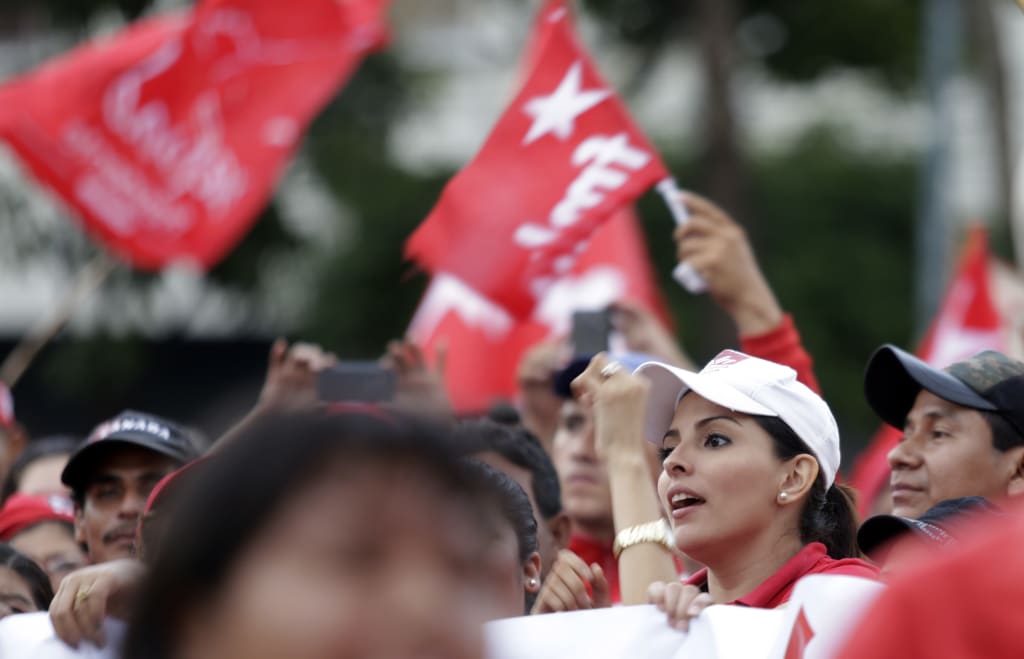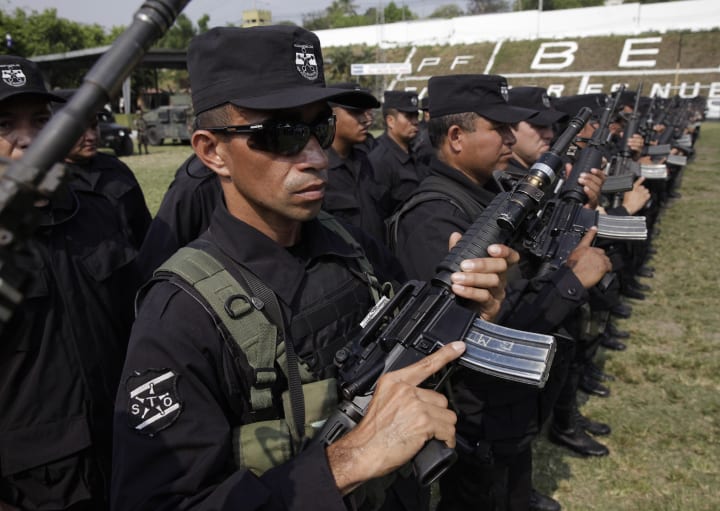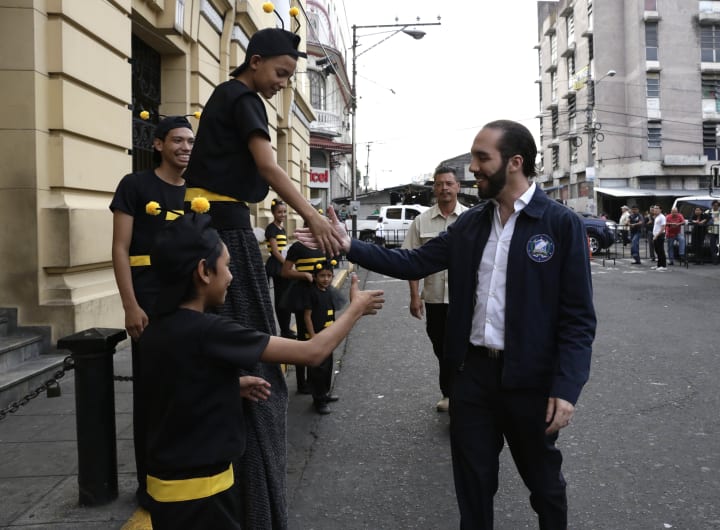El Salvador Presidential Elections 2019: Why Is It a “Game-Changer?”
Nayib Bukele is considered a "Next Generation Leader" according to 'TIME.'

Voters in El Salvador elected new leadership for the 84 seats in the Legislative Assembly and 262 mayoral seats for its municipalities this past March. The past governing party, Farabundo Marti National Liberation Front (FMLN), has lost popularity within the country, allowing opposition parties to prosper.
FMLN and its conservative opposition, Nationalist Republican Alliance (ARENA) have governed the country for years. FMLN is grouped of former Marxist guerillas, its initial roots stemmed from the civil war in the 1980’s where hundreds and thousands of innocent civilians died, something of which plagued the country for years to follow.
“Salvadoran politics has been dominated by ARENA and the FMLN since the end of the war in 1992. However, their era seems to be coming to an end, as the popular support for both parties is waning,” Adrian Bergmann, a researcher at the Universidad Centroamericana in El Salvador says. For almost a decade, FMLN has held its power within the Presidency however recent election results show things are about to change. ARENA maintains a great lead over FMLN by almost 64 percent, which means the current leftist President Sanchez Ceren will most likely have to work alongside a high number of opposing party members. But that is not the biggest problem they will face.
“One of the most immediate and obvious issues facing not just the current government of El Salvador but all of the Salvadoran people—especially the poor and working class—is the issue of gang-related violence and extortion,” said Hilary Goodfriend, a writer and researcher currently living in El Salvador. “However, the backsliding of security policy towards the same failed repressive measures of the past has disturbing human rights implications and only serves to further antagonize poor young men,” she added.
Underlying Issues

Commencement of "la Fuerza Especializada de Reacción El Salvador" (Flickr/Presidencia El Salvador)
Extortion and gang violence is nothing new for Salvadorans, and in certain cases, during times of election. In an interview for El Salvador’s La Prensa Grafica, one man shares his story as to how much control gangs have in certain municipalities. The young man, referred to as Carlos notes that due to gangs, had to move out of his home town as they “didn’t like seeing him” there. Carlos was in charge of the voting tables for this past election in the municipality that he once lived in, however the gangs had a heavy presence around the school at which it was to be held. When he arrived, one of the gang members asked for I.D. and when approved entry, he added that the fee to enter was $2, something that not everyone in the country has the luxury to give.
“Criminal activity is nothing more than the reflection of bad organization within the country from past years which obligated many families to live in poverty and having to leave to other countries, leaving behind their children without stable families which in turn can give them the support they need to succeed,” said Mauricio Velasquez, a law student from Universidad Gerardo Barrios.
Growing up in El Salvador, Velasquez has seen and experienced first hand as his country struggles to stay afloat in both security and economics. “No investment in public education, public health, deteriorating infrastructure of public hospitals, no opportunity for youth in the labour sector, many people economically active are unemployed, unstable private companies and corruption within the government,” said Velasquez as he named just a couple of issues people in his country deal with.
El Salvador ranks in at 91st on the Legatum Prosperity Index, governance in 81st, personal freedom at 67th and Safety & Security at 131st. The country has fallen from its ranking of 82 in 2017.
The "Game-Changer"

Bukele meets with members of "La Compañia Infantil de Teatro La Colmenita" of El Salvador (Flickr/Presidencia El Salvador)
As both political parties are losing their “momentum,” another sole figure is quickly gaining speed behind current candidates and is growing in popularity with the youth of El Salvador.
“Public opinion polls clearly show that Nayib Bukele is by far the most popular politician in El Salvador. What he doesn’t have, is a political party,” said Bergmann.
Bukele, once a party member of FMLN, was accused of defamatory acts against his party, violating women’s rights and its party’s principles. Bukele denied all counts, however asserted that FMLN is now being controlled by a small corrupt leadership group. “This candidate is trapped between 2 powerful parties, ARENA and FMLN, who purposely place obstacles so that he finds it difficult to win,” said Velasquez. “In my personal opinion, Nayib Bukele is a young candidate who is a populist, who sells his image as a person with fresh ideas that is in search for a radical change within the country,” he added.
Under Bukele, as mayor of the country’s capital San Salvador, the city’s murder rate dropped 16 per cent during his first year in office. Bukele is combatting the epidemic of violence with social work, reconstructing the city and improving its overall social structure, according to TIME’S Next Generation Leaders.
As Bukele runs for presidency in 2019, despite the fact he is running without a single legislator in his own party, a win doesn’t seem to be as far fetched as one may believe. “I find very little to get excited about when it comes to Bukele—I think it’s safe to say that Bukele has a chance,” said Goodfriend. “Some within the FMLN who are more to the party’s right, a social democratic faction, appear to be hoping to ally with Bukele in the event of a possible second round in order to prevent the Right from taking power. Others within the party vehemently oppose any such alliance,” she adds.
The upcoming elections will determine whether or not Bukele’s work paid off or if ARENA’s win this past election will result in ending the decade long run for FMLN’s reigning presidency. Despite Bukele’s notable influence on reconstructing cities and contributing to their social incline, the odds of him winning in 2019 are unrealistic in nature, that is if other “influences” do not meddle in election results. For a country full of vibrant culture and great potential, being optimistic in El Salvador’s economic stability and over all security, is somewhat of a naïve mindset, unrealistic at best.






Comments
There are no comments for this story
Be the first to respond and start the conversation.